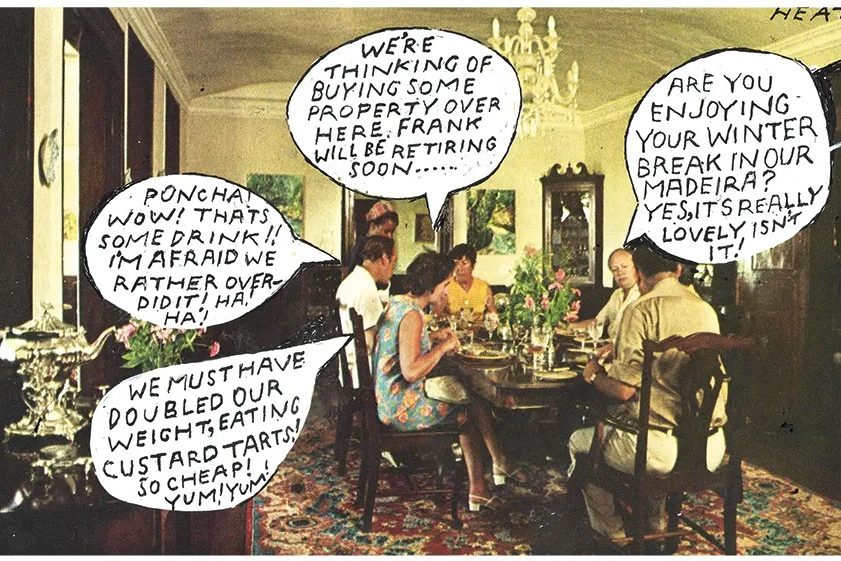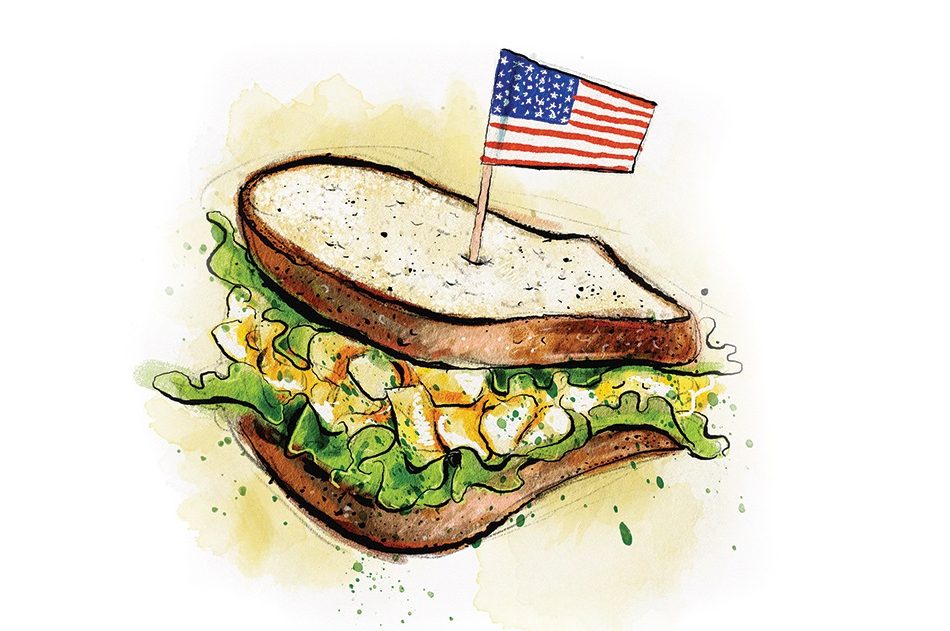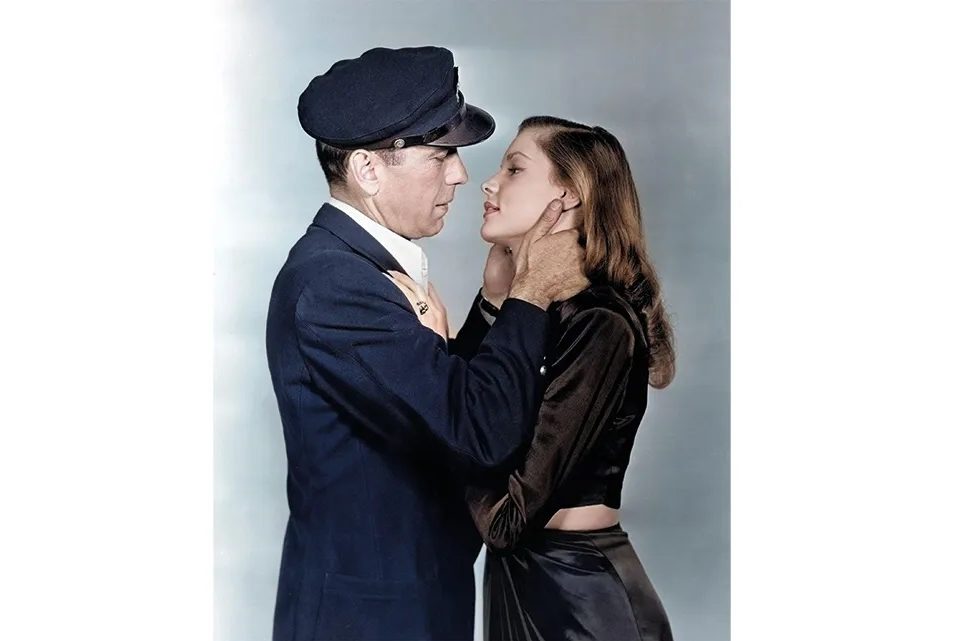My wife and I arrived in Madeira for a week’s peace and quiet, but the driver from the airport had other ideas and was soon telling us how difficult it was to own a taxi these days. Cars are much more expensive to buy than in Spain, for example, and there is a lot of red tape involved in running a cab. He was happy to be out of Madeira’s capital, Funchal, where the police were busy doing spot-checks. Sure enough, his pal soon called to complain that he’d just been fined for some minor breach of regulations. Then we were on to Portuguese politics. Antonio Costa, the country’s prime minister, had recently resigned following corruption allegations. Parliament would be dissolved and a new election organized, or else the socialist party would be asked if they wanted to appoint a new PM. Our driver shrugged, that most expressive of gestures, while I worked out whether I could use any of it in my next novel.
We were in a hotel near Funchal’s cathedral and soon learned the rhythm of the day. When a cruise ship arrived, the streets became busy, not only with visitors but with locals setting out their stalls. One day all three of the Fred Olsen fleet were in port at the same time. This seldom happens, and as they prepared for their evening departure, a tugboat pirouetted alongside, spraying water jets into the air. Horns were sounded and, as darkness fell, we were treated to an unexpected fireworks display. Perhaps this was a rehearsal for the festive season. Trucks full of strings of lights arrived in the city each day and soon no immovable object was left unadorned. I wondered how the grid could cope, but was told that much of the island’s energy comes from large-scale solar panels covering many of the hillsides. Residents are billed for the cost of the Christmas lights, but it’s only a few euros per household, and I didn’t meet anyone who felt the need to say “humbug.”
It’s a toss-up as to what was the best bargain of the holiday. We stumbled upon a café called Nata 7 where a decent coffee and a pastel de nata could be had for one euro and fifty cents. Being a true Scot, I ate my fill. Then again, Funchal also has an array of excellent higher-end restaurants. I ate limpets for the first (and probably last) time at Dos Combatentes, and enjoyed the spectacular tasting menu at Armazem do Sal. It couldn’t be said to be a bargain, which is also true of the afternoon tea we enjoyed at Madeira’s iconic Reid’s Palace hotel, but some things have to be done.
Some things, but not all. We took the cable car up the hill to Monte and the Botanic Gardens. This was our second time in Funchal and once again we stood and watched as tourists queued to be swept back down the steepest of roads in wicker baskets piloted by strapping local men in traditional garb. Happy to watch, but not at all inclined to take part. On our previous visit, we walked down instead — not a mistake I’d make twice. The road goes on forever and my legs took days to recover. This time, we had bought return tickets for the cable car. At the bottom, a long queue had formed for the ascent. The cruise passengers were out and about again.
Back to the bargains. For three euros you can visit a museum in what was the studio of Vicente Gomes da Silva, who was appointed photographer to the Empress of Austria, while his son (Vicente Junior) was given the same honor by the Portuguese royal family. Many of the photographs on display were posed family portraits, but elsewhere on the island I saw snaps of Sir Winston Churchill unloading painting materials from his car and one of a carefree Irish critic George Bernard Shaw dancing beneath a palm tree. We visited Camara de Lobos so I could have my photo taken next to the Churchill statue, but mostly we stuck to Funchal centre, sipping the occasional poncha (a traditional cocktail in Madeira). Back in our room, my blue cardboard folder was getting lonelier and lonelier. It contains all my preparatory notes for the new book, and I’d promised myself I would read them on the flight out. Or at a café. Or maybe on the flight back.
Reader, I started work on the novel as soon as we returned to Edinburgh. The notes remain by my side, as yet ignored. I’ll probably read them before the second draft.
Rebus: A Game Called Malice by Ian Rankin and Simon Reade is out now. This article was originally published in The Spectator’s UK magazine. Subscribe to the World edition here.


























Leave a Reply